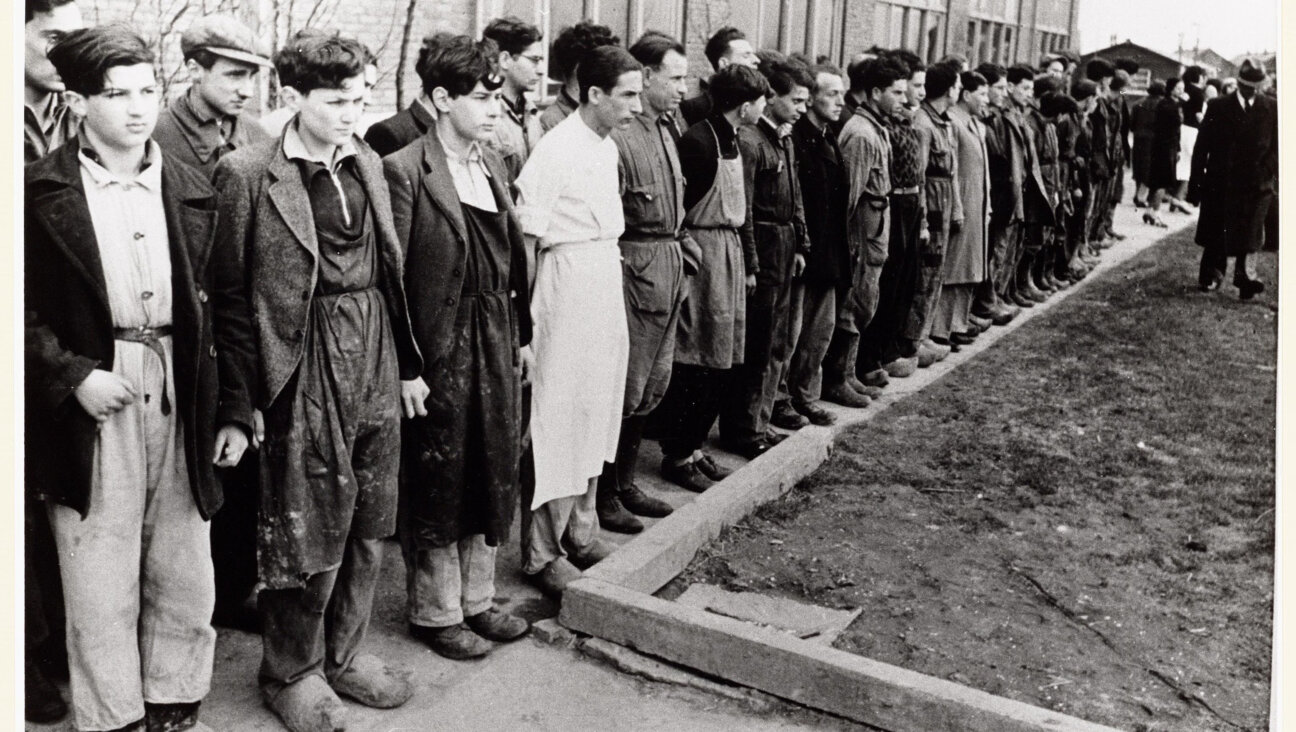‘Peter and the Wolf’ Gets Klezmerized
After having reinterpreted Pyotr Ilyich Tchaikovsky’s “Nutcracker Suite” as the “Klezmer Nutcracker” a few years ago, it wasn’t a great leap for Boston-based klezmer group Shirim to revisit Sergei Prokofiev’s classic story “Peter and the Wolf” as “Pincus and the Pig: A Klezmer Tale,” which they have done on a new CD by that name, recently released on John Zorn’s Tzadik label.
In Prokofiev’s classic — about a young boy who disobediently leaves his grandfather’s house, meets a bevy of animal friends and winds up saving them from being attacked by a wolf who comes out of the forest — each character is represented by a different instrument or group of instruments. In Shirim’s new version, the clarinet — the lead instrument of the klezmer ensemble, plays Pincus, the “boychick,” appropriately enough. Shirim’s instrumentation also includes trombone, tuba, piano, banjo and drums, making for colorful impersonations of the bird, the duck, the grandfather — that’s zayde to you — and, instead of a wolf, a pig, referred to here as the chozzer. (If nothing else, your kids will pick up a bit of Yiddish.)
This time out, the group collaborates with master storyteller and illustrator Maurice Sendak. Best known for his children’s classic, “Where the Wild Things Are,” Sendak lends his voice, paintbrush, sense of humor and a very convincing Yiddish accent to this retelling of the perennial children’s favorite often used as an introduction to the orchestra for young listeners.
Sendak’s narration is pitch-perfect, alternately comic and irascible. He appropriately spits venom at the pig, calling him “the repulsive porker,” but isn’t above tossing in an occasional anachronism like “whatever” or “loser.” This “Pincus” is more humorous and colorful — the bird taunts the swine by swooping around him, chirping, “Mazel tov, Bubeleh” — if not quite as scary as the original “Peter.” The hunters, probably responsible for many generations of children’s nightmares, are reincarnated here as clueless Cossacks — trigger-happy buffoons whom Pincus calls shmendricks.
Klezmer has a rich grammar and vocabulary, and the members of Shirim don’t have to stretch far to play Prokofiev with an Ashkenazic accent. Although Shirim’s “Pincus” sticks closely to Prokofiev’s “Peter” in terms of melody and structure — albeit with flatted fifths and augmented sevenths — the klezmer version swings a bit more than the original, which isn’t surprising given the musicians’ jazz and world-music credentials. Tango rhythms dance with Middle Eastern pulses, and Prokofiev’s tunes seem ready-made for reinterpretation as Hasidic dances, Romanian horas and free-metered doinas.
The album doesn’t end with “Pincus and the Pig,” however. In addition to the full story, told in an eight-page color booklet featuring original drawings by Sendak, a page of stickers of all the characters and a Yiddish glossary by Fishel Bressler, the CD includes klezmerized versions of Rimsky-Korsakov’s “Scheherezade,” a Brahms waltz that easily could be mistaken for a dobranoc, a good-night song that ended an Old World wedding, Erik Satie’s “Gnossienne No. 4,” and an excerpt from Mahler’s tormented Symphony No. 5.
In Shirim’s hands, klezmer becomes more than just a nostalgic genre — it becomes a full-fledged musical approach along the lines of blues or jazz. With “Pincus and the Pig,” listeners might not even know they’re being introduced to members of the orchestra, hearing klezmer and learning Yiddish all at the same time. They’ll likely be too entertained even to notice.
Seth Rogovoy is the author of “The Essential Klezmer: A Music Lover’s Guide to Jewish Roots and Soul Music” (Algonquin Books, 2000).













